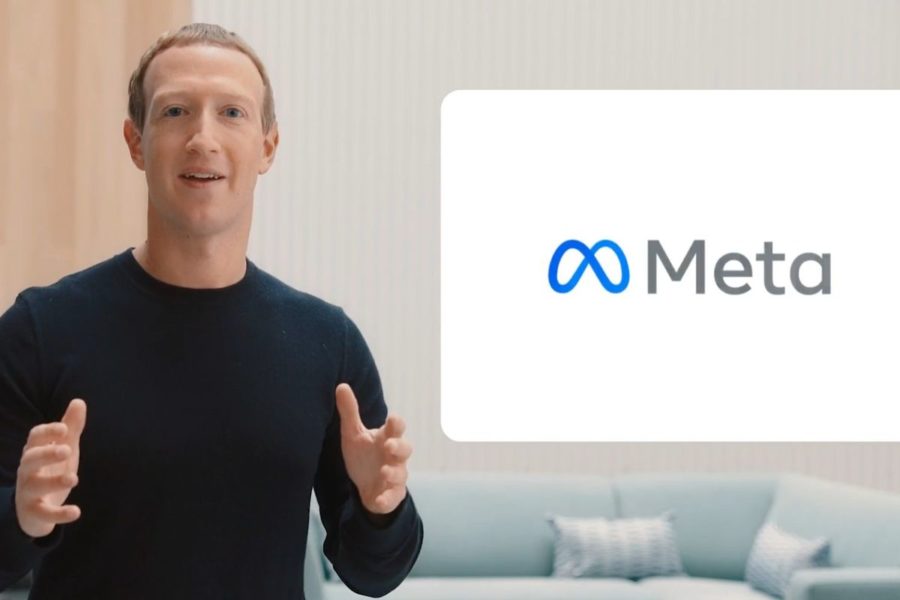Banerjee: Don’t let Facebook’s “Meta” rebrand distract you from the company’s awfulness
Facebook’s new name is simply a front to hide the company’s previous misdoings.
November 12, 2021
When Mark Zuckerberg said in July he didn’t want Facebook seen as “primarily being a social media company” but instead as “a metaverse company,” I scoffed.
Besides the nebulous definition of “metaverse” and the ambiguity of what exactly is a “metaverse company,” the idea itself is laughable. Sure, the man who is most effectively responsible for social media across the world today didn’t want his legacy to be social media—that’s rich.
When Zuckerberg announced in late October that he was so dedicated to the notion of the metaverse that he was changing the name of Facebook Inc. to “Meta,” I was even more incredulous.
The “metaverse” is a theoretical virtual reality where we all interact with each other through digital avatars. The concept is derived from science fiction such as “Snow Crash,” “The Matrix” and “Ready Player One”—all of which are notable dystopias where the real world has gotten so terrible that people are forced to be immersed in an all-digital environment. While Zuckerberg recognizes that the origins of the word are a “con,” he’s pushing ahead regardless with the hope that his company can be the center of this new reality.
However, it has not been the best couple of weeks for Facebook (or Meta, ugh). Following the congressional testimony of whistleblower Frances Haughen, a former employee, and the release of thousands of leaked internal documents, one thing can be known for sure—Facebook is a deeply flawed company, and its drive for profits is destroying real lives. Even though we have known for years that social media has toxic effects on our discourse and mental health, it’s been troubling to see how deeply aware the company is of its own issues and its apathy towards addressing them. The crisis began for Zuckerberg’s enterprise following Haughen’s revelation that Instagram, which Meta owns, is incredibly harmful for the wellbeing of its users, particularly teenage girls. The leaked internal study showed that the company has been fully aware that its platform spurs anxiety, depression, loneliness, suicidal thoughts and body image issues and has played it down rather than addressing it. This didn’t bode well with the fact that they planned to launch “Instagram Kids,” so children under 13 could also become hooked to the platform. Thankfully, that launch has been shelved since the revelations. Most indicative of the company’s response to the issue, however, is how their Vice President, Head of Research Pratiti Raychoudhury tried to rebut the damning internal study. Meta had an internal slide that said “we make body images worse for 1 in 3 teenage girls,” and Raychoudhury responded by saying that body image was only “one of 12 possible issues that Instagram could make worse for teenage girls.” So that’s great.
Since then, there’s been a barrage of revelations about the internal workings of the company. The “Facebook Papers,” as they’ve come to be known, have detailed many issues and how the company’s response (or lack thereof) has cost real lives—again, something Meta is fully aware of. Whether it be amplifying election misinformation, fueling political polarization and even facilitating genocide, the social media company is fully aware of all of its faults. Detailed documents show the far-reaching effects of seemingly innocuous Facebook experiments. For instance, the slight shift in the algorithm moved millions of readers towards more vitriolic content. Additionally, the platform has a seemingly nonsensical tier system for which countries deserve the most protection surrounding political violence, hate speech and the like. The reports also reveal that Zuckerberg has been actively lying about how much the company knows about its own ill effects, with his previous congressional testimony indicating that it was “not at all clear” that social networks cause polarization. However, Facebook conducted study after study showing that this was in fact the case.
All this comes down to a company-wide culture of prioritizing growth over all else. When you look at each and every single controversy, the decisions that Facebook makes all seem geared towards ensuring engagement and dominance. While Meta knows that their product is addictive to teenagers, they don’t do anything to stop it because they want it to remain this way. They are aware that usage of the main Facebook app is being abandoned at increasing rates by Generation Z and are trying to take active steps to reverse this trend and increase engagement on the still-popular Instagram. The company recognizes by hooking young audiences early, they might become life-long customers, therefore they continue designing their products to be as addicting as possible, all in the name of future growth. While one cannot begrudge a company for being profit-driven in a capitalist system, the extent to which Facebook has shown to actively make the wrong decisions that impact the lives of billions in order to make a few extra bucks proves that this company is rotten to the core.
Announcing the name change now following weeks of negative PR is a cynical move already, but if this series of scandals have shown us anything, it’s that Zuckerberg and Meta cannot be trusted. They shouldn’t be in control of anything as potentially powerful as the metaverse following how poorly they have handled their social media platforms. It is a truly careless, if not evil, company and no amount of “Meta”-morphosis will change that.



